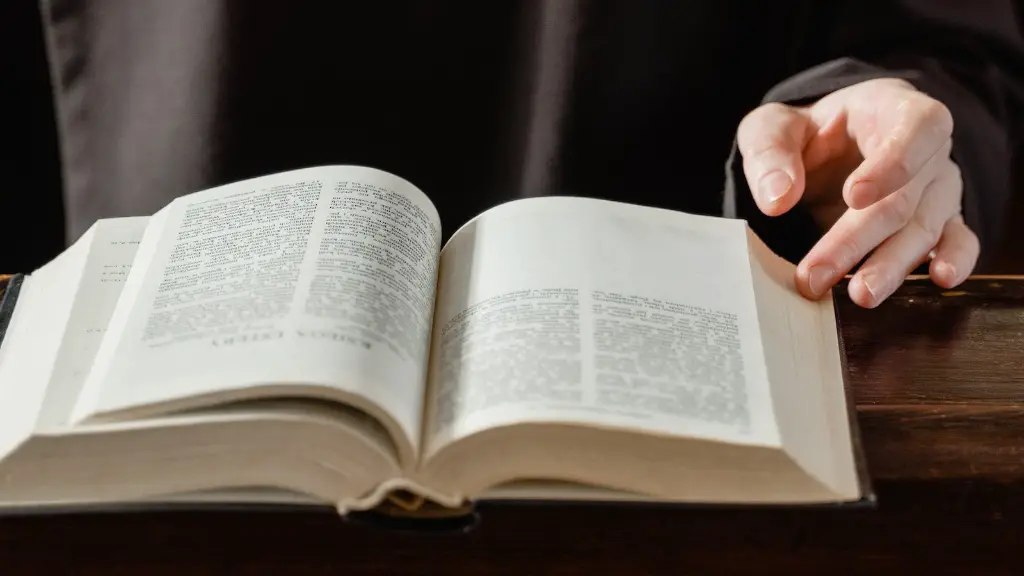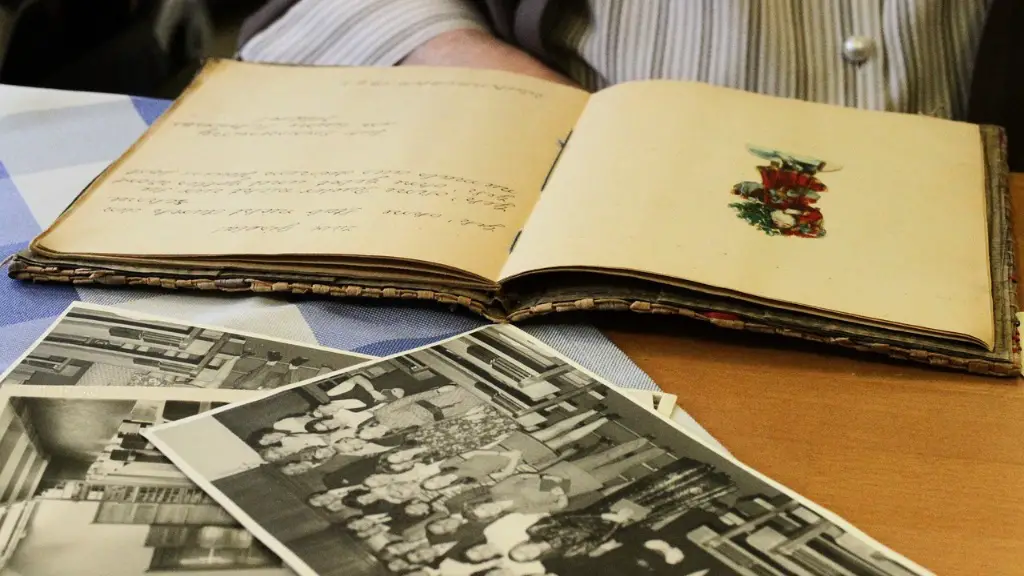Poetry is often seen as a source of comfort, reflection, and entertainment and this is especially true for those of us studying 18th century poetry. The 18th century saw a huge surge in the popularity of poetry, and with it the development of many different schools of thought and styles of writing. There are many themes and subjects contained within eighteenth century poetry, from love and romance to darker issues of mortality and suffering. In the 18th century, the form of poetry underwent many changes and advances, developing into more sophisticated iterations, such as the arrival of the sonnet and even whole literary movements like Augustan poetry.
One of the foremost figures in 18th century poetry is of course Alexander Pope, whose works helped to set the tone for many of the later poets. His faithfulness to the formal traditional of rhyme and meter influenced many subsequent poets, who often referred back to him directly; Jonathan Swift’s “Battle of the Books” being a notable example. Pope’s “Essay on Criticism” is essential reading for those looking to understand 18th century poetry better, due to the fact it is primarily concerned with rules of taste and guidelines for poetic structure.
The Augustan Age of Poetry was arguably the most prominent period for 18th century poetry. This era was named after the first major Roman Emperor, Augustus Caesar. The name was chosen because Roman writers of the time regularly employed words, phrases and moralistic tone of Augustan poetry. Characterised by its elegant and composed nature, Augustan poetry is often compared to its counterpart, the more passionate and rebellious Romantic poetry of the 19th century. Notable examples of Augustan poets include Jonathan Swift, Edmund Waller and Alexander Pope. The focus of Augustan poetry was largely on the depiction of everyday life and on the advancement of reason.
In addition to Pope and the Augustans, the 18th century produced a wealth of important, diverse and innovative poets from other schools of thought. William Cowper’s lyric poems often focused on politics and morality, whilst Charlotte Smith’s poetry explored themes of nature and faith. Additionally, Sarah Dixon was one of Britain’s first female magazine writers, and her reflective nature poetry and political satires were popular among the readers of the day.
The 18th century saw a great advancement in the literary craft; not just the development of larger and more varied bodies of work, but also the increased scrupulousness and heightened language. The poetry of the 18th century is inextricably linked to the wider social and political changes taking place during the time, such as the Industrial Revolution and the French Revolution. This period in History saw the enlargement and development of the printing industry which further enabled the poems to spread, providing a richer and more diverse experience.
Political Thought in 18th Century Poetry
Political thought played a major role in the formation and development of 18th century poetry. From William Wordsworth’s calls to reform the Church and his pursuit of liberal ideals, to William Blake’s revolutionary critique of established attitudes and beliefs, the 18th century was a period of immense political disparity and tension. For example, Edmund Waller’s use of political satire in his poem “Of the Last Verses in the Book” speaks to the practice of using poetry as a form of political commentary. Another example of this is the extraordinary hit “The Hen” by Mercy Eni, which was a powerful indictment of colonialism.
The political realm of the 18th century was not only about war and revolution; the ideologies ranging from reformism and conservatism to the thinking of the Enlightenment were all present in the conversation that poets of this era engaged in. They wrote of the world around them and the societies they inhabited. From Jonathan Swift’s playfulness in his “Battle of the Books” to William Wordsworth’s celebration of nature in “A Complaint to the House of Representatives”, political thought, whether explicit or implied, is a reoccurring theme in 18th century poetry.
The growing centrality of politics to literature, and the increasing public investment in the topic, shifted the locus of interest from private to public matters. Oliver Goldsmith’s famous poem, “The Deserted Village” offers a window into how politics and poetry were entwined. The poem is charged with criticism of the policies of the British government and of landlords. Goldsmith is particularly concerned about the displacement of rural people and the moral corruption of city life, which he saw as a consequence of the Industrial Revolution.
The 18th century was a period of immense social and political change, and the poets were acutely aware of their responsibility in spreading political messages through their art. The increasing demand from the public for literature to contain a political narrative and to engage in a dialogue with the public created a unique opportunity for the creativity of 18th century poets.
Romanticism and 18th Century Poetry
The Romantic period was a decade of intense exploration, reflection and yearning, which saw an unprecedented move away from the formal rationalism of the Enlightenment period. The Romantic poets sought to revive emotions and fantasy, creating beauty and power in their writing. Whilst the techniques of the new poets necessarily imported much from the Augustan Age; the focus on human emotion, natural beauty, and idealism were notable distinctions. Romantics like William Wordsworth, Blake, and Coleridge sought to explore ideas of the sublime, nature and God, whilst also engaging in emotional and introspective reflection.
The shift away from the rationalism of the Augustan Age set the stage for a major development in 18th century poetry and placed a larger emphasis on the emotional and imaginative nature of the poem. Wordsworth, Coleridge and Blake, arguably the most influential of the Romantic poets, all argued in favour of a new type of poetry which was more closely related to experience and emotion than to the intellectual arguments of the traditional form. The important shift away from pure form and the embrace of the emotional and personal significantly impacted the 18th century, as it opened the door to a new form of poetry that was more concerned with inspiring the reader’s imagination and inspiring emotions.
The shift in focus to emotion, imagination and experience that occurred during the Romantic period was felt in the works of many of the other prominent 18th century poets, such as Charlotte Smith and Mary Robinson. Robinson’s poem, “A Poem Upon War”, is both a reflection on the horrors of war and a criticism of those in power who pursue it. It is a poignant reminder that even those who promote war are not immune to its effects.
For women writers of the 18th century, the Romantic period was a unique opportunity to have their voices heard. Charlotte Smith, Anne Grant and Elizabeth Montague, amongst others, broke the mould and challenged conventions in poetry by writing about their own experiences as educated, independent women. These women used poetry to express their feminist ideals and to position themselves in a world which was slowly becoming more open to female voices in literature.
The development of a new form of poetry that moved beyond the bounds of rationalism and the open arms of the Romantic poets opened a new chapter for 18th century poetry. The passion and emotion of the poems that were born out of this period were profoundly influential, not just in the 18th century, but for centuries to come.
The Impact of 18th Century Poetry on Modern Times
The advancements made by 18th century poets impacted the world of poetry profoundly, and these changes are still evident today. Many of the fundamental aspects of poetry which we take for granted in today’s culture originated in the 18th century, such as the use of verseforms and metre, the emergence of satire and the development of themes such as nature and love. The groundwork laid by the 18th century has served as a platform for modern poets to continue pushing the boundaries and pushing poetic expression to its limits. The legacy of 18th century poets serves as a reminder of how much of an impact they had on the world of art and literature as a whole.
The theme of love is particularly interesting, in that it was proudly embraced by the early Romantic poets, such as William Wordsworth and William Blake, but there are also notable works by female 18th century poets that contribute to this narrative. For example, Mary Montagu’s poem “An Essay on Woman” critiques the patriarchal society of the time and explores the theme of love from a female perspective. Montagu’s poem voices an ongoing struggle for equality and understanding, which many feel is still relevant today.
The devotion of 18th century poets to their craft is perhaps one of the most inspiring aspects of their legacy. So many poets and writers were dedicated to their art, producing amazing works even when their works were not widely accepted or acknowledged. Their achievements stand as a testament to the time they lived in and have inspired poets throughout the centuries.
Conclusion
The 18th century was a time of intense creativity and exploration. Poets of the era made enormous contributions to the field of poetry, introducing new themes and styles and pushing the boundaries of poetry even further. This ground-breaking era of poetry is still highly influential today, with its themes, styles, and forms still evident in contemporary literature and art. This surge in popularity and advancement of poetry also helped to raise its cultural profile, making it more widely appreciated and accepted amongst the public. Illustrated above, there is no doubt that the 18th century poets made an incredible impact on the history of poetry.




